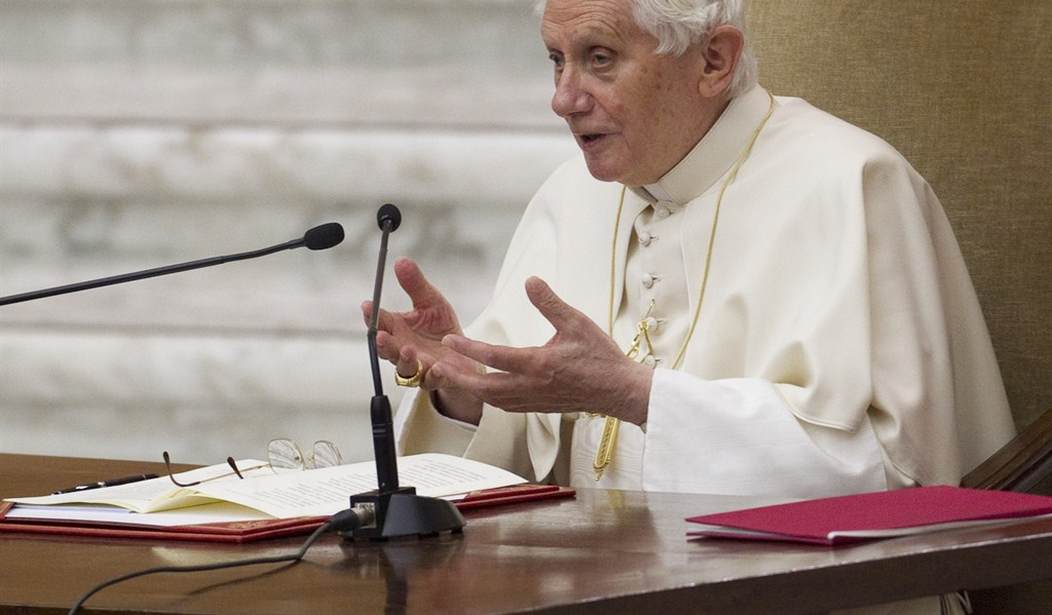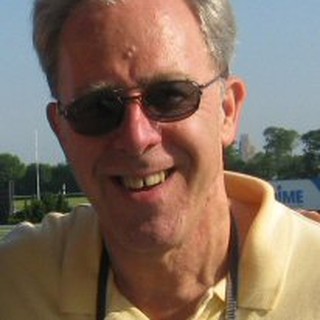Pope Emeritus Benedict XVI died in a monastery in the Vatican today. With the death of Queen Elizabeth II earlier this year, he was the last great world leader from the World War II generation. He chose to spend the last years of his life praying for the church, concealed by and large from public view after retiring in 2013 following eight years as pope.
The fourth German pope, he was the first to resign in 485 years. A shy man, he was asked in 2018 if he feared his approaching death. In a book-length series of interviews, “Last Testament,” Benedict told journalist Peter Seewald, “In a certain respect, yes. For one thing, there is the fear of imposing on people through a long period of disability… Another thing is, despite the confidence I have that a loving God would never forsake me, the closer you come to his face, the more intensely you feel how much you have done wrong… that you have not done enough for people, not treated them rightly… so many things where you have to say things could and should have been done better. I will plead with him to show mercy towards my wretchedness.”
Born Joseph Ratzinger in Altotting, Bavaria, on April 16, 1927, his father was a local police officer. Since his father opposed the Nazis, the family was later moved to smaller and smaller towns before his father was forced into retirement. In 1939, Joseph entered the seminary following in the footsteps of his older brother Georg.
In 1943, at age 16, he was drafted from the seminary into the Wermacht as an anti-aircraft assistant near Munich. He never saw combat. In fact, he had a thumb injury, which he thought the doctor may have made worse to keep him from battle. He eventually deserted. When the SS came to the family home for him, his father yelled at them so much they gave up and went away. Later he was interred in an American POW camp where food was often in very short supply. In the political struggle after the war between whether Germans should focus on unity or freedom, he sided with Konrad Adenauer’s call for freedom as the basis for founding the new West Germany.
After the war, he resumed his theology studies, focusing on scripture, the Fathers of the Church, and St. Augustine, not the more traditional focus on St. Thomas Aquinas. This sometimes put him at odds with his more conservative professors. He was a key expert at the Second Vatican Council in the early 1960s, only to break sharply with many fellow theologians after the council.
He rejected the movement claiming theology could function independently of local bishops, the bishop of Rome, and the church’s teaching authority. In this split with those who saw theologians as an almost parallel magisterium, Ratzinger went from being considered a liberal to a conservative, although he rejected both labels. He saw the council as in continuity and not a break with the past. Hans Kung, whom he had once worked with as coauthor of a book series, was one of his most persistent and vocal critics.
Ratzinger’s major book at this time, Introduction to Christianity, put him on the international stage. The social and political divisions of 1968 that would split universities in Europe and the United States were well underway. And many of his former colleagues would spend the rest of their lives attaching to him and working to undermine his authority in the church and later his papacy.
Always active as a pastor as well as an academic, at one point, he even served five years as chaplain to the international brewing school in Munich known as the “Oxford of Beer.” In 1977 he was appointed Bishop of Munich. After the elevation of John Paul II as pope, he was asked if he would like to come to Rome. Ratzinger turned down the offer. In fact, Ratzinger was a man who was keenly aware of his limitations and turned down numerous “prestigious” positions. He knew his own mind, something he clearly demonstrated when he resigned from the papacy. Ratzinger always made clear his strengths and weaknesses in any job he undertook and worked accordingly.
Eventually, he gave in to John Paul II. He agreed to become Prefect of the Doctrine of Faith (the old Holy Office of Inquisition fame) and president of the Biblical Commission and Theological Commission. He also oversaw the writing Catechism of the Catholic Church, the first catechism from Rome since the Council of Trent and its response to Luther in the 1560s. His only condition was that during his five-year appointment, he could still do his theological writing. But once drafted to Rome, there would be no discharge. His requests to return to Germany or later for retirement were routinely denied, and his appointments re-upped.
Eventually, he bought a home to retire in with his brother Georg, and with the death of John Paul II, he believed his time in Rome was over. It was not to be. During the conclave of April 19, 2005, he was elected the 265th Pope of the Catholic Church. He personally thought it inappropriate, given his age and his health. The mandatory retirement age for bishops is 75; he was already 78, blind in one eye, and had already suffered a stroke in 1992. He thought the church needed someone far more energetic to clean up what he had already publicly called “the filth” in the church.
In the 1950s, he had written that darkness was falling over faith in Europe and that a far smaller Catholic Church and Christian presence might be the future. Now he was facing that challenge personally as pope. In the end, he dismissed over 400 priests from holy orders after streamlining the legal process for removing priests in sex abuse cases.
His 2006 lecture on Faith and Reason at his old university Regensburg led to riots in the Muslim world when he quoted a medieval reference to the theology of violence sometimes practiced in Islam. He suppressed the title Patriarch of the West and met with Orthodox Patriarch Bartholemew I of the Orthodox Church. He also worked with Jewish leaders to improve interreligious dialogue. He formally opened the way for the widespread restoration of the old Tridentine Latin Mass. “Something which was previously the most sacred thing to people cannot suddenly be completely forbidden… that cannot be,” he said. As archbishop of Munich, he strongly opposed the decision in Rome to limit its use after the Second Vatican Council.
Toward the end of his papacy, he even had to deal with a psychologically disturbed butler who stole papers from his desk in the Vatican and released them. He also undertook long overdue Vatican bank reform. He only retired when he felt the storms he was dealing with had settled.
Related: St. Francis of Assisi and the First Nativity Scene
Unlike many in Rome, he had a keen understanding of and love for the United States. Before becoming pope, he visited New York in 1988 to give a talk at St. Peter’s Lutheran Church in midtown Manhattan. Gay activists stormed the podium and tried to shut down his talk. He calmly stood by, waiting for cancelers to be cleared, and quietly continued his talk where he had left off. Although he never had a driver’s license (he felt he was too clumsy to operate a car safely), he was a passenger in a car that broke down leaving the Queens Midtown Tunnel in New York and ended up spending part of a day in a gas station in Queens waiting for it to be repaired. Some believe this experience in New York helped confirm his belief that the U.S. was a role model for countries on how very different people can live in peace with one another.
As pope, he wrote three encyclicals: “God is Love,” “Saved in Hope,” and “Charity in Truth,” and part of a fourth, “The Light of Faith,” published by his successor Pope Francis. He communicated through over 6,000 sermons, public addresses, letters, and decrees, as well as completing his three-book series “Jesus of Nazareth,” written under his own name during his time as pope. One recurring theme was his critique of what he called the “dictatorship of relativism.”
There are currently 82 of his books in print. He wrote everything in pencil using shorthand. He told Peter Seewald he worked “at the writing desk, or if I have to think something through thoroughly, I lie on the sofa. There I can think things through steadily. I always need a sofa.” His sister Maria spent 34 years as his office assistant and housekeeper.
He walked every morning and evening, sometimes long distances. He had a favorite Bavarian comedian, Karl Valentin, and one day walked 30 kilometers to visit his grave. “With him, I felt this strange, grumpy serenity. I understood his particular sort of strange, enigmatic humor as, yes, significant. I realized you can come to reflect about things which you can laugh about.”
Benedict XVI’s concept of eternity and heaven was both theologically profound and simple when it came to what he liked to call seeking the face of God. “God is so great we never finish our searching. He is always new. With God, there is a perpetual, unending encounter with new discoveries and new joy. Such things are theological matters. At the same time, in an entirely human perspective, I look forward to being reunited with my parents, my siblings, my friends, and I imagine it will be as lovely as it was in our family home.”
Karl Valentin’s signature line was, “Today I will pay myself a visit; I do hope I am at home.” It is safe to say that Benedict XVI, pope, scholar, and advocate of the compatibility of faith and reason, will soon find himself at home in that unending encounter with family, friends, and the face of God he so longed to see.










Join the conversation as a VIP Member